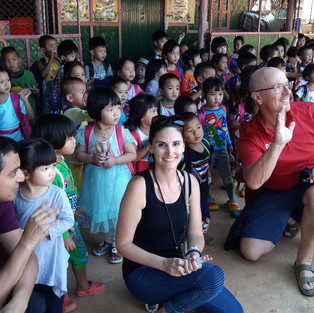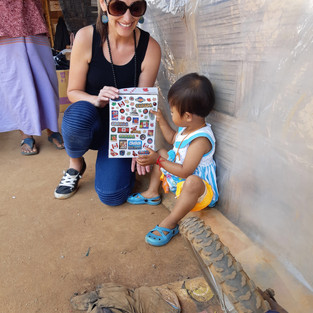Plunge In, Experientally
- LHiggins

- Feb 22, 2019
- 2 min read
During our recent field study to the Chiang Mai province in northern Thailand, I had the opporunity, along with another peace fellow, to share our experiences through the Rotary Peace Centre Chulalongkorn blog. You can read about our journey to the Myanmar border and our explorations of the issues of the Shan people, as well as other displaced ethnic groups that are living in camps, just kilometers from their homes in Myanmar here:
https://rotarypeacechula.wordpress.com/2019/02/21/plunge-in-experientially/
https://rotarypeacechula.wordpress.com/2019/02/21/protracted-crises-the-new-normal/
It was an eye-opening, life-changing experience - one that gave real depth and emotion to the precarious human security situation of people who are displaced. The boundless, human connection shared is something sacred that will impact me for a long time to come.
One of my favourite parts of the field study was all the time we spent sharing in community, especially in the Koung Jor Camp. The smiles, love and kindness experienced in the face of incredibly difficult human security conditions left me in awe of the capacity of the human spirit.
We also had the chance to meet with some incredible people and organizations who are working on the issues related to displaced persons. From meetings with Chai Mai University, The Border Consortium, the MAP Foundation, Shan Human Rights Foundation and the Burma Relief Centre, we all were inspired by the work globally and locally and the potential of the power of individual and collective action.

Explorations
While in Chiang Mai, we had the chance to visit some of sights and participate in a cooking class. We started by a trip to the market learn about typical Thai food ingredients and to pick out our cooking supplies. Within a couple of hours, we made everything from curries to spring rolls and tom yum. I am looking forward to trying out my new skills with you all at home!



Your Thoughts
There are more than 10 million people who are believed to be stateless around the world and thus denied a nationality. They often aren’t allowed to go to school, see a doctor, get a job, open a bank account, buy a house or even get married. “Without nationality, many say they cannot enjoy their human rights in full.” -UNHCR
Did you know there is a global campaign to end statelessness by 2024? What experience do you have to share about this? Find out more: https://www.unhcr.org/ibelong/
All my relations,
~lorelei



























Comments